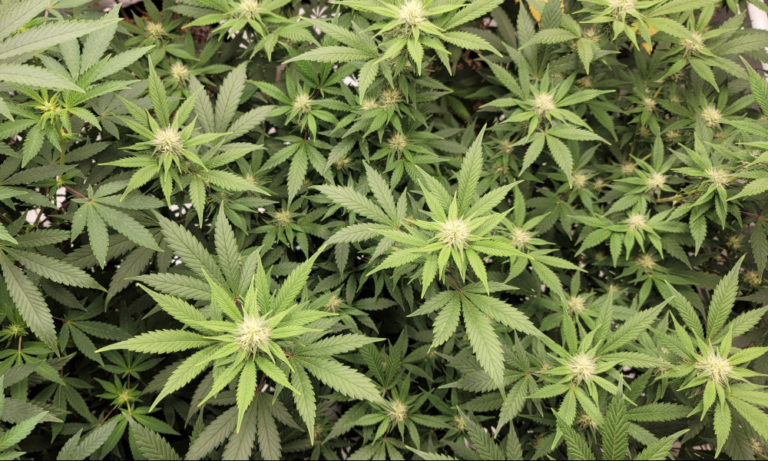
[ad_1]
A U.S. Senate committee has approved a bill to limit the ability of federal agencies to use past marijuana use as a factor in making employment and security clearance decisions. The legislation is titled the Dismantling Outdated Obstacles and Barriers to Individual Employment, or DOOBIE, Act.
The measure cleared the Senate Homeland Security and Governmental Affairs Committee, which is chaired by the bill sponsor, Sen. Gary Peters (D-MI), in a 9-5 vote on Wednesday. This represents the latest legislative attempt to ensure that a person’s eligibility for the federal workforce is not negatively impacted just because they’re previously consumed cannabis.
The DOOBIE Act, a play on a term used to refer to a marijuana joint, was initially set to receive a markup in the Senate panel in July, but that hearing was later cancelled and rescheduled last week.
The bill states that covered agencies “may not base a suitability determination with respect to an individual solely on the past use of marijuana by the individual.” The White House Office of Personnel Management (OPM) would also need to adopt that policy.
The bill further says that “the head of a Federal agency may not base a determination that a covered person is ineligible for a security clearance solely on the past use of marijuana by the covered person.”
They additionally could not use prior cannabis use to deny a personal identity verification credential, which enables federal workers to access various facilities and information.
Also under the proposal, the Director of National Intelligence (DNI) would be required to enact regulations that update its own cannabis policies and assist other federal agencies in implementing the employment and security clearance changes.
To that point, DNI has previously affirmed that it is not the federal government’s current policy to deny people security clearances based on past marijuana use alone, stating that it is counterproductive to recruitment efforts, especially amid the growing legalization movement.
Peters’s legislation would achieve the same key objectives of a bipartisan House bill that was introduced last year. Originally, that measure would have provided employment protections and prevented security clearance denials for past and current marijuana use, but a committee amendment limited it to past consumption.
The Congressional Budget Office (CBO) scored that bill in February, determining that it would have a “negligible” fiscal impact—in large part because analysts say provisions on reviewing past denials for potential relief likely can’t be carried out under current federal record-keeping policies.
Rep. Jamie Raskin (D-MD), the prime sponsor of the legislation, also attempted to enact the reform via an amendment to a marijuana legalization bill, but it was narrowly defeated on the House floor in 2022.
Last year, the Senate separately approved a measure that would prevent intelligence agencies from denying security clearances to applicants solely due to their past marijuana use.
Sen. Ron Wyden (D-OR) filed a broader amendment in 2022 that would have prevented employment discrimination based on prior or present cannabis use at any federal department, not just those dealing with intelligence. But the provision was scaled back under a second-degree amendment from the panel’s chairman before being adopted by the committee. And then the reform was ultimately quashed when two GOP senators objected to attaching the broader bill to the National Defense Authorization Act (NDAA) on the floor if it included the marijuana language.
—
Marijuana Moment is tracking more than 1,500 cannabis, psychedelics and drug policy bills in state legislatures and Congress this year. Patreon supporters pledging at least $25/month get access to our interactive maps, charts and hearing calendar so they don’t miss any developments.![]()
Learn more about our marijuana bill tracker and become a supporter on Patreon to get access.
—
Meanwhile, in July the House approved the 2025 NDAA that includes a section to prevent military branches from testing recruits for marijuana as a condition of enlistment has been left intact, despite opposition from the White House.
The Department of Defense (DOD) told lawmakers last year that marijuana’s active ingredient delta-9 THC is the most common substance that appears on positive drug tests for active duty military service members. And several military branches have taken steps to loosen cannabis-related restrictions, including issuing waivers for recruits who test positive their first time.
Also this year, the House Rules Committee has blocked a series of proposed amendments to various spending bills that would have prevented covered agencies from testing job applicants for marijuana use in legal states. Rep. Robert Garcia (D-CA) has sought to enact the reform through numerous spending measures—so far without success.
Photo courtesy of Mike Latimer.
[ad_2]
Source link
